EU Is Falling into Global Loneliness Following Trump's Victory
Adelina Marini, November 13, 2016
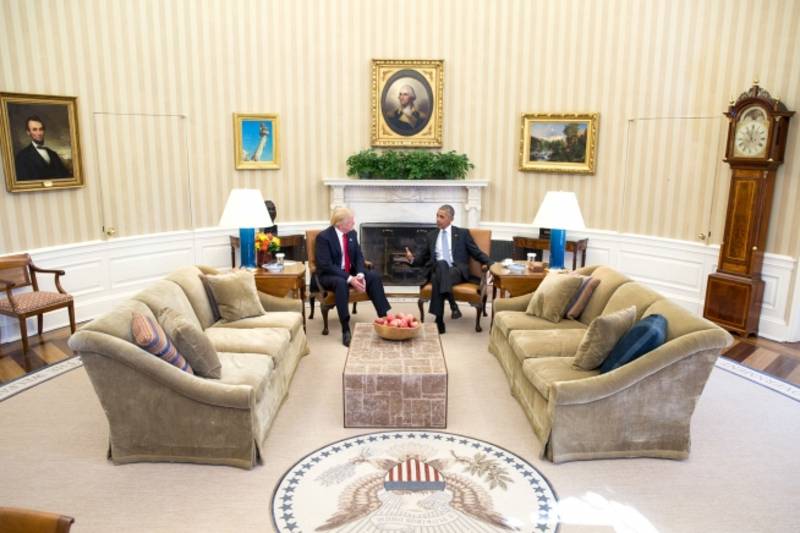
It was not until after the USA presidential elections that the EU began to realise that it is left on its own, despite President Barack Obama trying to say it to his European partners on numerous occasions. Donald Trump’s victory is a great opportunity for the EU to deepen its integration in the sphere of defence and security, but is this even possible today? The first reactions following the announcement of the election result bring hope, although, so far, they only show the direction, not the unity. They also demonstrate that something very big has happened, which requires going out of the usual protocol congratulations on the victory and sending a message. The axis, around which the EU needs to spin its unity is liberal democracy and the values the Union is built upon, as cliché as this might sound. It is exactly that, which makes the task difficult, however. But the first step has been made – analysing the situation.
Surprise and perhaps hope as well caused the reaction of German Chancellor Angela Merkel, who directly placed all future relations between the US and Germany under condition. “Germany and America are bound by values – democracy, freedom, as well as respect for the rule of law and the dignity of the individual, regardless of their origin, skin colour, creed, gender, sexual orientation, or political views. On the basis of these values, I offer close cooperation to the future president of the United States of America, Donald Trump”. Later in her speech, Mrs Merkel states that the USA will remain a cornerstone for German foreign policy.
Her Foreign Minister Frank-Walter Steinmeier, on the other hand, announced the awakening in the new world. “I think we will have to get used to the idea that US foreign policy will be less predictable for us and we will have to get used to the idea that the US will tend to make more decisions on its own”, said Mr Steinmeier. He sent out a message to the EU itself as well by stating that neither Germany, nor Europe can afford to be thrown off course by the election results. “We should remain a stronghold of reason and we should foster our political culture”, he continued.
First Minister of Scotland Nicola Sturgeon as well did not hide her disappointment with the election result. “While this is not the outcome I hoped for, it is the verdict of the American people and we must respect it. I congratulate president-elect Trump on winning the election”. She expressed hope that Mr Trump will not keep to the tone of his campaign and will be a president for everyone “in modern, multicultural America”. Nicola Sturgeon called on all those who believe in tolerance and diversity to speak loud and clear about these values.
The traditional joint statement of the presidents of the European Council Donald Tusk (Poland, EPP) and the European Commission Jean-Claude Juncker (Luxembourg, EPP), despite attempting to be composed and politically correct, showed some panicking. In it, the two leaders called for the organisation of an EU-US summit “at earliest convenience”, during which to set the course of trans-Atlantic relations for the next four years. The two of them hope that America, “whose democratic ideals have always been a beacon of hope around the globe, will continue to invest in its partnerships with friends and allies”.
A little later, Donald Tusk came out with an independent, quite more direct statement, in which he admits that the elections have brought uncertainty on the future of trans-Atlantic relations. “The events of the last months and days should be treated as a warning sign for all who believe in liberal democracy. This means that we should finally get our act together and bring back a sense of direction, bring back confidence, bring back a sense of order”, is said in the statement. The leader of the largest political group in the European Parliament Manfred Weber (Germany, EPP) put his finger in the wound by stating that it is obvious that the EU needs to take responsibility for its own future and its own interests. “We don’t have to look anymore so closely to Washington. We have to look what European interests are and defend them”, he said.
In much the same spirit was the Twitter reaction of the leader of the Liberals group in the European Parliament Guy Verhofstadt. He believes that the election of Trump is a “wake up call for Europe to further unite and take charge of its own destiny”. Gianni Pittella (Italy), leader of the Socialists and Democrats group, stated that the victory of Trump opens up an opportunity for Europe to set its house in order. “There are great winds of change pushed by the losers of globalisation, and not only the poorest ones, but people who chose misogyny and racism”, was Mr Pittella’s reaction.
From NATO to a defence union?
The EU has long felt the need to take full responsibility for its own security and President Barack Obama has been trying during the full length of his presidency to explain to his European partners that it is time for them to be at least equal partners in the trans-Atlantic partnership. The EU-USA summits, which grew ever rarer over the years, were a signal for the cooling down of the trans-Atlantic partnership, ignited to red hot by the wars in Iraq and Afghanistan. The securing of the American energy independence by the shale gas revolution, the pivoting of the US foreign policy towards the Pacific region and the unwillingness of Washington to be drawn into Ukraine or Northern Africa were clear indicators that the EU should count on itself ever more. It was, however, busy elsewhere.
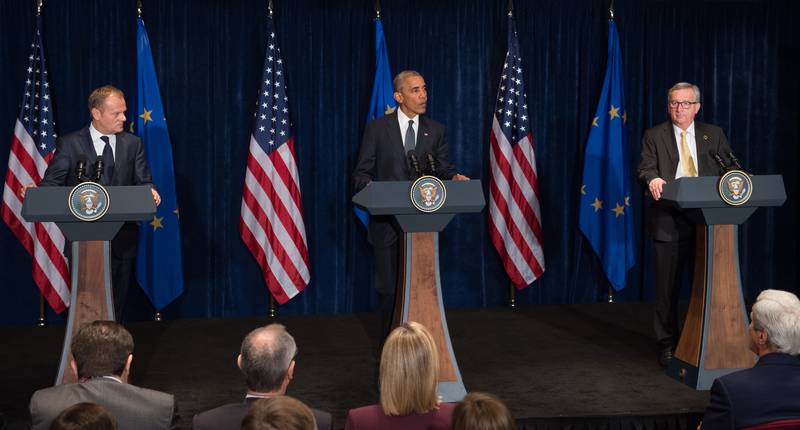
During the latest EU-US summit this year in Warsaw, within the framework of the NATO summit, President Obama, fully aware of the situation in his homeland for the election campaign was already peaking, made it perfectly clear that it may be earlier than we all expected or wanted that the EU will have to take its destiny in its own hands. His arguments, again, were based on democracy. “Every member of the EU is a democracy. No EU country has ever raised arms against another. An integrated Europe is one of the greatest political and economic achievements of modern times, and this is an achievement that has to be preserved”. “The world needs a strong, prosperous, democratic and united Europe”, continued Mr Obama.
The reply of President Donald Tusk revealed that the EU is not ready. At this same summit the former Polish prime minister insisted that the EU still needs the USA for its security and democratic foundations. “I remember when 27 years ago, it was in my hometown of Gdańsk, members of Solidarity welcomed George Bush-senior outside the famous gate of the Gdańsk shipyard. We were chanting: "Nie ma wolności bez solidarności" that means "There is no freedom without solidarity". We already knew then, that our newly-gained freedom would require defence and guarantees, which − in a global dimension − implied the closest possible cooperation between Europe and the United States. Today, we can repeat that phrase with only a small change; it has preserved its meaning. ‘There is no freedom in Europe without Atlantic solidarity.’”
This was back in July. In the beginning of November, the shock by the election of Donald Trump starts to build confidence in the EU that it can be an independent superpower. It is the exact wording that was used by the High Representative of the European Union for Foreign Affairs and Security Policy Federica Mogherini (Italy, Socialists and Democrats) just a day after Mr Trump’s victory. In her annual speech in front of the European Defence Agency, she stated that the EU hides some true potential of becoming a superpower. “Europe and Europeans have the responsibility, and also the opportunity, especially in these days we see it very clearly, to find our own way to security, to shape the answers to very difficult questions in a world where there is very few things, if any, we can take for granted”, she said.
It is somehow just in time, and perhaps just a bit late, that Mrs Mogherini presented the new global strategy of the Union. This happened in an exceedingly inopportune moment – literally days after the referendum in Great Britain, at which British citizens chose to Brexit and that after a not less ugly and manipulative campaign than the one in the USA. Facing MEPs of the EP’s Foreign Affairs Committee and representatives of national parliaments, Federica Mogherini attempted to explain that the need for deepening of integration in the sphere of defence and security is not a result of the Brexit, but is a priority to citizens.
The new strategy envisages a deepening of integration in the defence and security sphere, which Germany and France named a “defence union”. So far, the obstacle to the realisation of some bolder ideas was NATO. Many EU members, which are also members of NATO, are reserved towards such ideas for they believe that they will duplicate the functions of the Alliance. At the NATO summit in July, however, President Obama gave a carte blanche to Europeans to continue forward. The joint declaration of the EU and NATO says that, considering the common challenges, a stronger NATO and a stronger EU will strengthen each other.
Expressly charted out in the declaration is the development of “coherent, complementary and interoperable defence capabilities of EU Member States and NATO Allies”. It also envisages the facilitation of a stronger defence industry and more serious research and development activities in the field of defence in Europe and on the other side of the Atlantic Ocean. Part of this declaration could prove a problem, for during his campaign Donald Trump demonstrated contempt towards NATO. He believes the Alliance is outdated, which will make cooperation between Washington and the EU quite a bit more difficult regarding the exchange of information because of the lack of trust towards the president-elect.
If he keeps the same vision towards NATO, it could further untie the EU’s hands in continuing to build its own defence without having to fear Washington’s reaction. This could, however, prove more difficult today, when in the EU Donald Trump and his anti-establishment policy have a growing number of followers. Hungarian PM Viktor Orbán, who all the way back during the election campaign announced his support for Trump, was among the first to congratulate him on his victory. Viktor Orbán even glorified it as a victory of true democracy over liberal non-democracy. This seems to be a new chorus, for two years ago he announced his intention to building an illiberal regime, because he believes that liberal democracy has failed, never minding the fact that it is because of it that he came to power. In Poland, although no official course against liberal democracy has been announced, government actions are aimed in the exact same direction. There are problems with democracy elsewhere in the Union as well.
This is a very serious problem, which will hobble the EU in its attempts to consolidate as an island of liberal democracy and peace. It looks like another obstacle will be Great Britain, which, although it is almost entirely out of the EU, has stated firmly that it is against the plans of the EU to build a defence union. London has threatened to block these plans to the last possible minute. To Theresa May’s government, this is a serious leverage instrument for the winning of more concessions during the exit negotiations of Great Britain. The ruling of the High Court in London of last week, however, shows that those negotiations might not start soon. And this in turn means that the EU plans for a defence union might run late and become even more impossible with the complication of the global atmosphere.
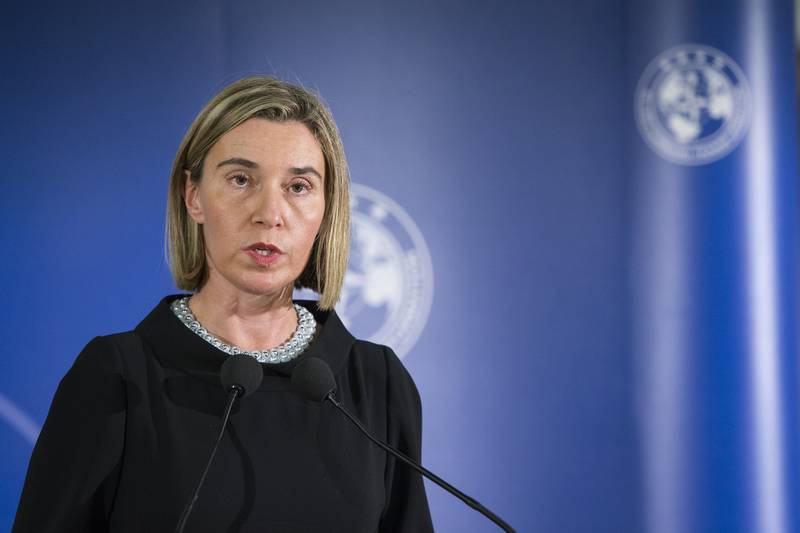 The Union is late as it is. It failed to offer an adequate reply to the Russian aggression in Ukraine, the Middle East, or Northern Africa. The EU turned out to be completely incapable of pushing through even its own policy regarding the migrant and refugee crisis. It will not get any easier over the next few years, just more difficult, as was admitted by the German foreign minister himself as well. Following the US elections, the EU woke up in a world where global balance has already been tipped towards authoritarian regimes. Putin, Erdoğan, and China are no longer global marginals. Their crusade towards a new illiberal world order will be led by the mightiest economic and military power in the world. In order to survive in this ever more hostile environment the EU will need much more than just admitting that the situation is difficult.
The Union is late as it is. It failed to offer an adequate reply to the Russian aggression in Ukraine, the Middle East, or Northern Africa. The EU turned out to be completely incapable of pushing through even its own policy regarding the migrant and refugee crisis. It will not get any easier over the next few years, just more difficult, as was admitted by the German foreign minister himself as well. Following the US elections, the EU woke up in a world where global balance has already been tipped towards authoritarian regimes. Putin, Erdoğan, and China are no longer global marginals. Their crusade towards a new illiberal world order will be led by the mightiest economic and military power in the world. In order to survive in this ever more hostile environment the EU will need much more than just admitting that the situation is difficult.
Donald Tusk put his finger on the problem all the way back in July, when at the EU-USA summit he charted the boundaries of the new world order. “All those who value our fundamental principles of freedom, the rule of law, democracy, human and civil rights, must act in favour of this cooperation. [...]We know, however, that besides the old world and the new world, there is also a world apart, with different values and different strategic aims. And it has allies, also in the USA, in Europe, and here in Poland. [...] We have been building liberal democracy with determination on both sides of the Atlantic. We have followed the lessons of the same scholars, we have been inspired by the same political philosophies. We must now protect this heritage, both rich and indeed surprisingly fresh”.
EC President Jean-Claude Juncker made a speech in a similar spirit back then. “The United States, NATO, and the European Union are central pillars of the global order. We complement each other, and together provide peace and stability in Europe, our neighbourhood, and beyond”. Alas, by all accounts the US is dropping out of the equation, and without the US NATO is dropping out as well. So the EU, together with several more countries around the world like Canada, Australia, New Zealand, and Japan will remain the only havens of liberal democracy. The good news is that the Union is fully aware of the new situation. Thus, it is as early as this Sunday that ministers of foreign affairs will gather for an informal meeting in Brussels to discuss the new defence plans, fully aware of the urgency of the matter. On Monday, the ministers will discuss in detail Federica Mogherini's action plan for the implementation of the global strategy. Those meetings will show the state of unity in the EU.
In order to be effective, however, the EU must first of all cleanse itself from the enclaves of illiberal democracy, which are weakening and undermining it. It is now more than ever that determination is needed to deal with this problem, especially after the first reactions, following Trump’s election, showing clearly that the magic key is exactly in liberal democracy and Western values.
Translated by Stanimir Stoev
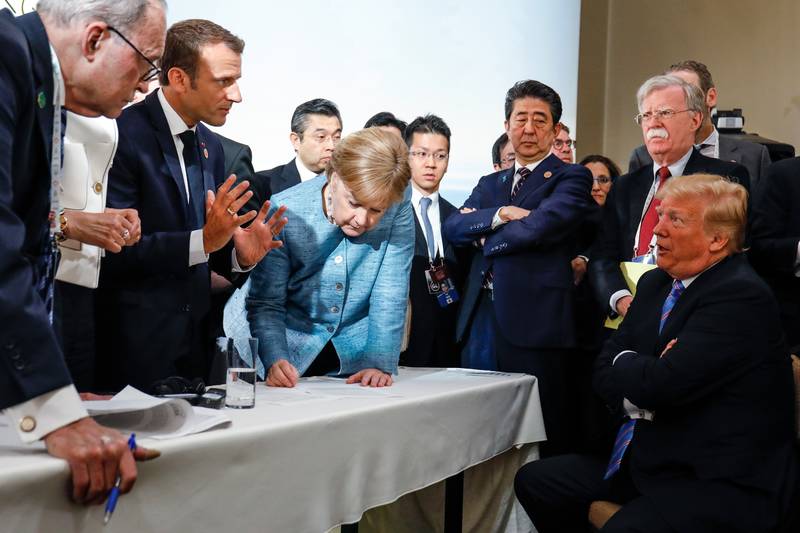 Macron, Merkel, Abe, Trump | © Council of the EU
Macron, Merkel, Abe, Trump | © Council of the EU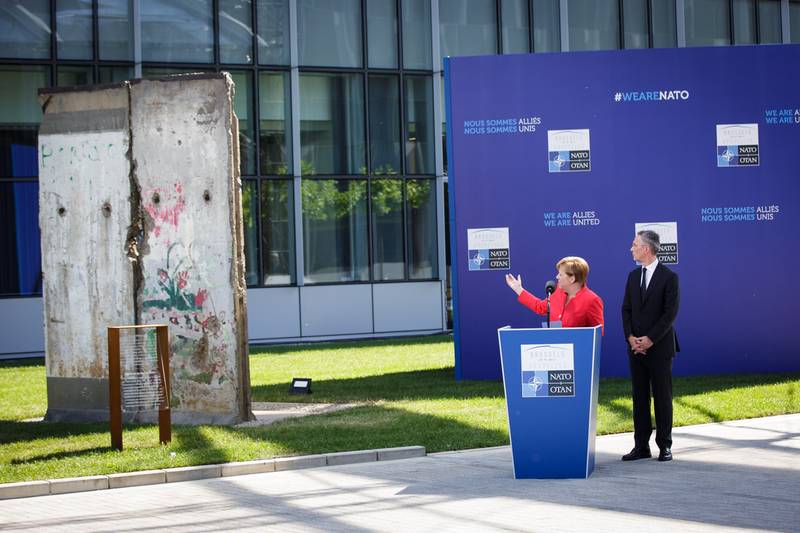 Angela Merkel | © Bundesregierung
Angela Merkel | © Bundesregierung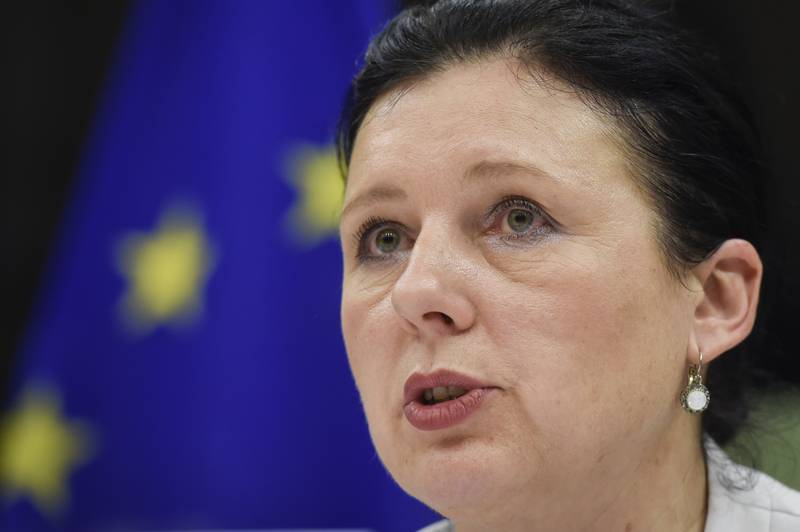 Vera Jourova | © European Parliament
Vera Jourova | © European Parliament